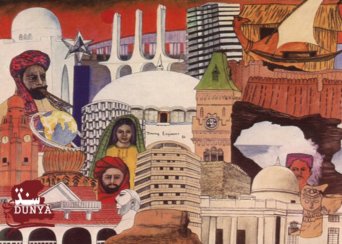- About
- Topics
- Picks
- Audio
- Story
- In-Depth
- Opinion
- News
- Donate
- Signup for our newsletterOur Editors' Best Picks.Send
Read, Debate: Engage.
A provincial assembly in Pakistan introduced one of a kind law against forceful religious conversions last week.
The bill recommended a five year punishment for perpetrators and facilitators of forceful religious conversions in the southern Sindh province that homes majority of Hindu minority in the country who has long been complaining of forceful conversions.
The bill dubbed as ‘The Sindh Criminal Law (Protection of Minorities) Bill 2015” was lying on the speakers table for over a year before taken-up for debate and ultimate approval on the November 24.
Days after this landmark bill was passed by the legislators, leaders of the far-right religious parties not only denounced it publicly but called for the complete dismissal of the elected assembly for this ‘un-Islamic’ law. “The Sindh government is converting the province into ‘Kafiristan’ [land of the infidels] with such un-Islamic decisions,” Maulana Sami-ul-Haq, one of the top religious leaders in the country said.
In defiance of the rhetoric presented by the far-right, representatives of the Hindu community slammed those opposing the new law, and came with a counter narrative of their own. Ramesh Kumar, Patron-in-Chief of the Pakistan Hindu Council demanded the law against forced conversions to be introduced across the country.
No doubt, the issue at hand here has the lives of hundreds of thousands of citizens associated with it. But, the fact that even the existing laws of the land and the basic human rights of the citizens are not respected the fundamental forces are seizing opportunities to further infringe upon the lives of individuals with self-styled interpretation of the religion.
In this case, both the Muslim and Hindu leaders are sort of imposing their perceived versions of ‘right life style’ upon many young men and women who should rather have the liberty to choose for them whatever they feel suitable.
According to representatives of the Hindu community, more than 250 cases of conversion, mostly involving Hindu girls, had taken place in the province last year alone. Similarly, a number of incidents, no exact figures available, of conversions from Islam to other religious have also taken place. And there have been quite a few incidents when converts with consent from one religion to another have faced persecution of a grim nature.
So, if the choices imposed upon the individuals by fundamental forces outweigh the basic rights of the individuals than things could get only worst for minorities as well the majority.
